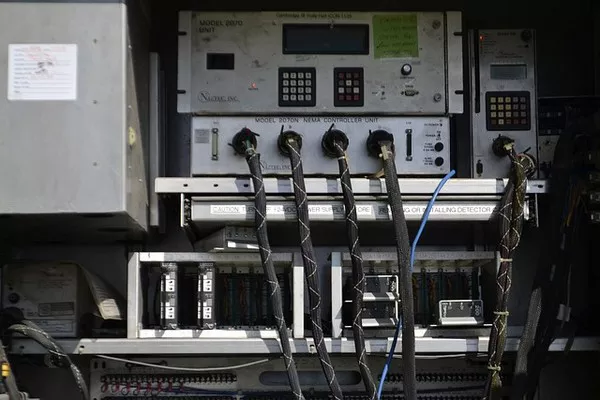Refrigerators are one of the most common household appliances, providing essential cooling and preservation for food and beverages. At the heart of every refrigerator lies a critical component—the compressor. This article delves into what a compressor is, how it functions within a refrigerator, and its pivotal role in maintaining optimal cooling efficiency.
The Role of a Compressor in Refrigeration
The compressor in a refrigerator serves as its primary mechanical component responsible for circulating refrigerant throughout the cooling system. Its fundamental purpose is to compress low-pressure, low-temperature refrigerant vapor into high-pressure, high-temperature vapor. This compressed vapor is then condensed back into a liquid state through the condenser coils, releasing heat in the process. The liquid refrigerant, under high pressure, flows through an expansion valve, where it expands and cools down significantly before entering the evaporator coils inside the refrigerator. This cycle of compression, condensation, expansion, and evaporation is what facilitates the cooling process within the refrigerator.
Types of Refrigerator Compressors
Refrigerators can feature different types of compressors, each with its unique operational characteristics and efficiency levels:
Reciprocating Compressors: These are the most common type of compressors found in household refrigerators. Reciprocating compressors use a piston-cylinder mechanism to compress refrigerant. They are robust, reliable, and well-suited for small to medium-sized refrigeration applications.
Rotary Compressors: Rotary compressors utilize rotating mechanisms, such as vanes or scrolls, to compress refrigerant. They are compact, operate quietly, and are often used in smaller refrigeration units or refrigerators requiring lower capacities.
Scroll Compressors: These compressors use scroll-shaped components to compress refrigerant. They are highly efficient, generate less noise, and are commonly used in larger and more energy-efficient refrigerators.
Linear Compressors: Linear compressors employ a piston-like linear motion for compression, offering smoother operation and enhanced energy efficiency. They are often found in high-end refrigerators and are known for their quiet performance.
Key Functions of a Refrigerator Compressor
The compressor’s primary function is to maintain the desired temperature inside the refrigerator by compressing and circulating refrigerant. However, its role extends beyond basic cooling:
Heat Removal: By compressing refrigerant, the compressor enables the removal of heat from the refrigerator’s interior, keeping the contents cool and preserving freshness.
Pressure Regulation: The compressor regulates the pressure and flow of refrigerant within the cooling system, ensuring optimal performance and efficiency.
Temperature Control: The compressor responds to temperature fluctuations by adjusting the cooling cycle, maintaining a consistent internal temperature.
Energy Efficiency: Modern compressors are designed for improved energy efficiency, helping reduce electricity consumption and operational costs over time.
Efficiency and Performance Considerations
The efficiency and performance of a refrigerator are greatly influenced by the type and condition of its compressor. Here are some key factors to consider:
Size and Capacity: The compressor’s size should be matched to the refrigerator’s cooling requirements. An oversized compressor can lead to excessive energy consumption, while an undersized one may struggle to maintain adequate cooling.
Energy Efficiency Ratings: Look for refrigerators with high Energy Star ratings, indicating superior energy efficiency driven by advanced compressor technology.
Noise Levels: Compressor type can affect noise levels. Scroll compressors and linear compressors are generally quieter compared to reciprocating or rotary compressors.
Durability and Reliability: Choose refrigerators equipped with durable compressors that are designed to withstand continuous use without frequent breakdowns or maintenance issues.
Maintenance and Troubleshooting Tips
Proper maintenance of the compressor is essential for ensuring the longevity and efficiency of a refrigerator. Here are some maintenance and troubleshooting tips:
Regular Cleaning: Keep the condenser coils and compressor unit clean to promote efficient heat transfer and airflow.
Temperature Regulation: Check and adjust the temperature settings periodically to ensure optimal cooling performance without overworking the compressor.
Refrigerant Levels: Monitor refrigerant levels and ensure there are no leaks in the cooling system, as this can affect compressor efficiency.
Professional Servicing: Schedule regular maintenance checks with a qualified technician to inspect and service the compressor and other refrigerator components.
Future Trends in Compressor Technology
The refrigeration industry is constantly evolving, driven by advancements in compressor technology aimed at enhancing energy efficiency and sustainability. Some notable trends include:
Variable Speed Compressors: Compressors that can adjust their speed based on cooling demands, optimizing energy consumption.
Green Refrigerants: The development and adoption of eco-friendly refrigerants that have minimal impact on the environment and comply with regulatory standards.
Smart Compressor Control: Integration of smart technologies for precise temperature control and remote monitoring of refrigerator performance.
See also Choosing the Right PSI for Your Compressor: A Complete Guide
Conclusion
In summary, the compressor is the backbone of a refrigerator’s cooling system, playing a crucial role in maintaining optimal temperature and preserving food freshness. Understanding the functions and types of compressors can help consumers make informed decisions when purchasing refrigerators based on energy efficiency, performance, and durability. As compressor technology continues to advance, refrigerators are becoming more energy-efficient and environmentally friendly, aligning with the growing demand for sustainable appliances in modern households.

